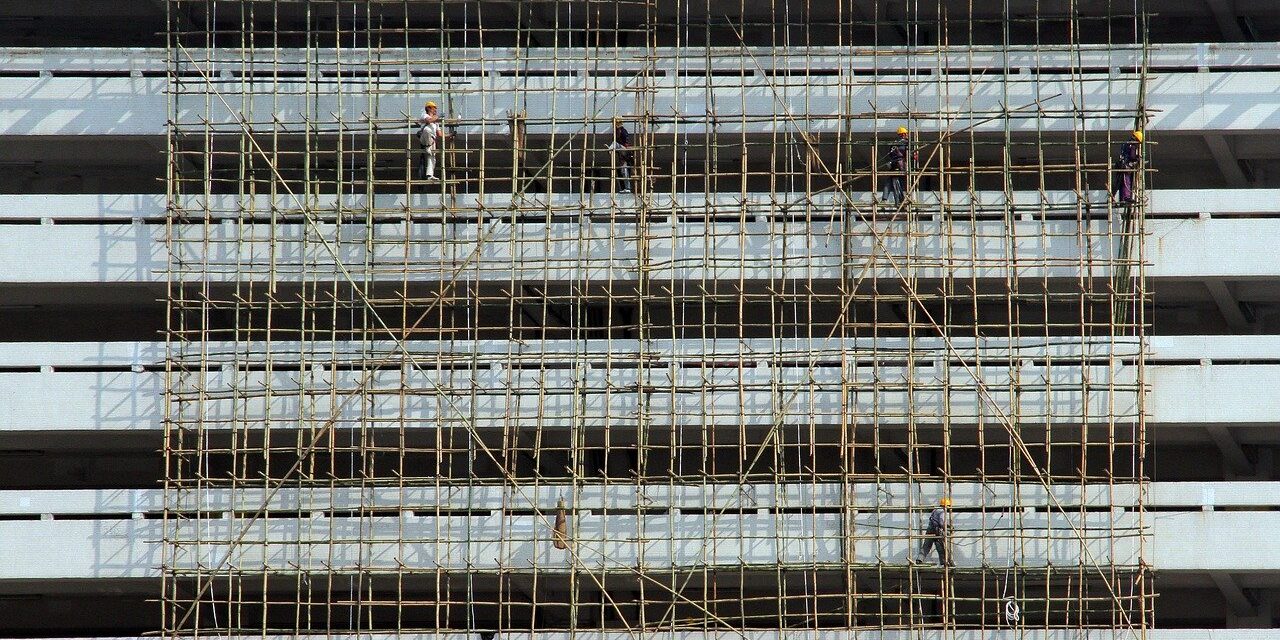As the nation commemorates Labor Day, scientists, artists, youth, human rights, public health, and citizen groups join forces with the labor sector to demand for the increase and expansion of mass testing capacities of the country before lifting the enhanced community quarantine protocols and reopening the economy. The government and business groups have been keen to start economic activities the soonest to save the country from further economic meltdown. However, civil society groups have expressed their concern over the risks of this move.
Molecular biologist Joshua Danac of Scientists Unite Against COVID-19 (SUAC-19) cited the poor execution of mass testing in the country. “There are still massive backlogs in testing centers, and results take very long to be released. The Department of Health has failed to attain its initial stated target of 8,000 tests per day.”Since the government’s declaration on the start of mass testing on April 14, Danac pointed out that there are only 19 accredited testing centers in the whole country as of April 30, with around 50 percent of those centers based in NCR alone.
Danac further said, “The actual testing capacity of our country still lags behind because laboratories and personnel have not been capacitated in the first place. For massive testing not to fail, we must ask the government to be transparent and to act on the following issues: how will capacity be increased to clear the backlogs and shorten turnaround times? How will they increase the number of tests done per day? What about funding — will the government dedicate part of its budget for increasing testing capacity by buying equipment and hiring personnel?”
Meanwhile, human rights-based health service organization Medical Action Group (MAG) pointed out that aside from incapacitated testing centers and personnel, a public health and rights-based approach was not initiated by the government as well. According to MAG Executive Director Edel Hernandez, “The lack of diagnostics and cure for COVID-19 underscores the need for the government to scale up the mass testing using international standards, protecting the health of frontliners, and improving the delivery of healthcare services around the country. Inaction on the part of the government is a disservice to the nation. The COVID-19 pandemic is undoubtedly creating a climate of fear and panic through restrictive, stigmatizing and punitive measures imposed by the government as infectious disease control.” MAG urged the government to veer away from compulsory restrictions towards a human rights-based approach, centered on evidence-based response and promoting community empowerment and engagement.
The Philippine Alliance of Human Rights Advocates (PAHRA) emphasized the demand for government to take a human rights-based approach in tackling the COVID-19 situation in the country. It pointed out that basic human rights of workers specially their safety and security should be guaranteed by the government, not neglected.PAHRA Secretary General Rose Trajano said, “Testing, continuing assistance, and security of work are the basic human rights that should be effectively addressed by the government. Though certain limitations on fundamental rights and freedoms are unavoidable during public health emergencies, any disproportionate response can definitely lead to significant human rights violations. It amplifies the already underlying barriers that people face in protecting their health and their inability to meet basic survival needs.”Recent news reports and viral social media posts have shown arbitrary arrests and ill treatment by law enforcers to people who have breached quarantine restrictions.
With the government preparing to loosen the lockdown by May 15, the artist-activist collective DAKILA criticized plans of the government to reopen the economy without providing proper safety nets to the labor sector and the poor.Conglomerates and major business owners earlier announced Project ARK, a joint initiative to conduct massive testing on workers using rapid antibody test kits to help them assess who are fit to return to work. Medical experts have warned against the use of antibody test kits as diagnostic tools due to their tendency to display ‘false negative’ results. DAKILA spokesperson Leni Velasco said, “The return of work operations around the country is essential for the economy to run again, but to facilitate that using unreliable means will put workers into danger. The move to use to rapid antibody tests for mass screening for COVID19 will only give workers a false sense of security and run the risk of spreading the virus in the workplace — leading to a second wave of infection that our public health system won’t survive.”
DAKILA also slammed the recent statement of the Presidential Adviser for Entrepreneurship Joey Concepcion saying that the workers and the poor are more resilient to the virus and should be separated from those who are healthy through isolation. The statement, they pointed out, is a gross manifestation of the unjust treatment of the working poor, as well as businesses’ lack of value for laborers.“Workers and the poor are NOT virus-proof. They remain one of the most vulnerable sectors in this pandemic. In any situation, their lives must never be put in danger; it must be protected at all times.We can’t restart the economy at the expense of workers’ safety,’Velasco ended.
In line with this demand, a group of volunteers who started the campaign on mass testing named #MassTestingNowPH calls on the government to strengthen the Test-Treat-Trace approach in addressing the pandemic. The campaign urges business owners to use rRT-PCR testing to assist the return of employees to work after community quarantine protocols are lifted and they call for workers to demand the same.“Only through an expanded RT-PCR testing can we have an accurate picture of the COVID-19 infection in the country. This should serve as the basis for any government decisions and actions. We should strengthen our call for mass testing, contact tracing, isolation, and treatment along with the continued provision of health and socio-economic assistance to our people,” #MassTestingNowPH said.
Aforementioned groups and individuals expressed their social solidarity with the workforce on Labor Day 2020. They commit to intensify the #MassTestingNowPH campaign until laboratories and personnel are capacitated, massive rRT-PCR-based testing is conducted, public health and rights-based approach is adopted by the government and the business sector, and the safety of workers are not put in danger amidst the desire to restart the economy.###
______
For press inquiries, contact the following:
DAKILA:09155833364 | mabuhay@dakila.org.ph
Philippine Alliance of Human Rights Adocates (PAHRA): 09395677987 |rightscomms1987@gmail.com
Medical Action Group (MAG): mag.1982@magph.org
Scientists Unite Against COVID-19: scientistsuniteagainstcovid19@gmail.com
#MassTestingNowPH: masstestingnowph@gmail.com




![[IN PHOTOS] In Defense of Human Rights and Dignity Movement (iDEFEND) Mobilization on the fourth State of the Nation Address (SONA) of Ferdinand Marcos, Jr.](https://focusweb.org/wp-content/uploads/2025/07/1-150x150.jpg)



